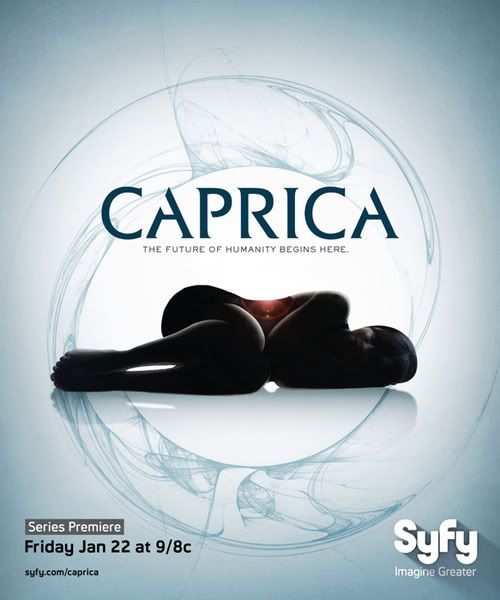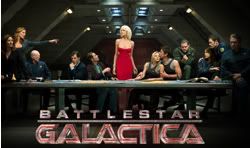[Cross-posted from my Livejournal cuz I think y'all might enjoy.]
Mood: eager and thoughtful
Have you been following the Writers Guild of America (WGA) strike? I know a lot of you have done. I've been reading my fill of it for seems like many months now, even though I have nothing to do with that side of the film/TV biz. Yet as a fan, and as someone who makes my living marketing films to the masses, I am fascinated with this strike and its fallout.
One of the most important elements to this strike is the new media self-awareness tipping point among what is called "the creative community" - ie, the writers, filmmakers, actors, and even producers, of all the shows we fans are so enamored of. Is this entertainment indeed as Joss Whedon has recently suggested, America's #1 Export? Is it something that we fans simply cannot live without, our modern mythology, a mirror we hold up to ourselves? What is its value, that is now apparently the question in Hollywood.
Anyone who follows this strike at all on the internet has probably read a few of the things I want to bookmark here. I just want to make sure you've read all this, if you are interested in the future of entertainment on the internet...or "in new media" or however you like to call it.
Something happened when NETSCAPE founder (and FUNNY OR DIE investor) Marc Andreessen wrote this on his blog - and, much more importantly, this piece here about the idea of Hollywood beginning to become more like Silicon Valley. While somewhere in their gilded castles high above us all, Steve Jobs gleefully rubbed his hands together, and the Google Boys popped open another bottle of Dom, these two little blog posts began to make the rounds. On the picket lines, and elsewhere. Meanwhile the striking writers' presence on the internet, and their direct interaction with fans, blossomed. Most people on my flist probably know what I'm talking about. (If not, go have a look at the past month of posts on Sitrep and UnitedHollywood.)
After a little time, Patrick Goldstein had some more to say. Maureen Ryan collected her thoughts and (being a previously music-obsessed journalist), made the music connection as well as the Silicon Valley one.
Today I see that Goldstein (aka "PGoldy" in some blogger circles, heh) has taken this ball and run even further. This new piece is the most fascinating yet, in that we fans can glean here from a super-insider, Hollywood-wide discussion going on right now that could change the film & TV business in PROFOUND WAYS. I feel the need to post this excerpt:
Perhaps both sides in the writers strike should start studying the new economic model operating in today's pop music world. If your product has lost its value in one arena -- meaning if no one's buying your CDs anymore -- you can create value in a new arena. That's why Prince gave away millions of copies of his latest CD, because the real money for him was in concert tickets. It's why Beyoncé and Gwen Stefani have launched clothing lines and the fragrance industry is chock-full of perfumes from Britney Spears and Jennifer Lopez.
"Successful pop artists represent something to people, so their value is in loaning their persona, their music or their likeness to other marketers," says Ken Hertz, a veteran music industry attorney who represents Beyoncé and the Black Eyed Peas and does strategic marketing with such companies as Hasbro and McDonald's. "That's where the new equity lies. Music is the best way for a marketer to build trust with people. And if you trust them, you're going to buy their product, but the real engine for creating trust is the music."
That's not to say that screenwriters will strike it rich endorsing Dell computers (although "Daily Show" contributor John Hodgman will surely make more money for his appearances in those Mac vs. PC ads than writing books like "The Areas of My Expertise," a hilarious almanac of utterly unreliable information). My point being: No one knows where the real value of writing will come from five years from now. It may still be in residuals from TV and films, but it may be from some new YouTube-style Internet buzz site fueled by outside money from Wall Street or Silicon Valley.
While the WGA and the studios flail away at the negotiating table, snarling at each other like the warrior ice bears in "The Golden Compass," new entrepreneurs from Wall Street and Silicon Valley are entering the fray every day. The studios have been buying up or trying to co-opt many of the new entertainment streams, but the writers have a lot to say about the future, since the Internet is a medium where the word has retained tremendous power.
"We're entering an era where, just as there are 300 cable and satellite TV stations, there will be 300 different economic models for different kinds of entertainment," says veteran film producer Michael Shamberg. "There will always be a primal need for people to tell stories, but no one knows what the price structure for those narratives will be. It's a time of extraordinary experimentation of how to sell things, therefore it's an extraordinary time in terms of what you can sell."
So the writers can count on one key advantage. Even when it's difficult to agree on the value of almost anything, it's not hard to understand that in a business of storytelling, everything starts with the storyteller.
On a final note - many months ago, I read this piece in the New York Times...and wondered about its larger implications in the film/TV biz.
This is very, very exciting for us fans. Keep your eyes and ears to the ground folks.
And please keep calling the Big Media, keep sending pencils.






2 comments:
I find it interesting that the cited pop music model is seen as Prince taking it to a "new" area when it is, in fact, the "old" way of doing things. Not wrong, not bad, just strange (and a little ironic to this classical musician, at least).
Yeah well..."new" is relative here. But for modern entertainment biz models, this has the patina of newness. Ironic indeed.
Post a Comment